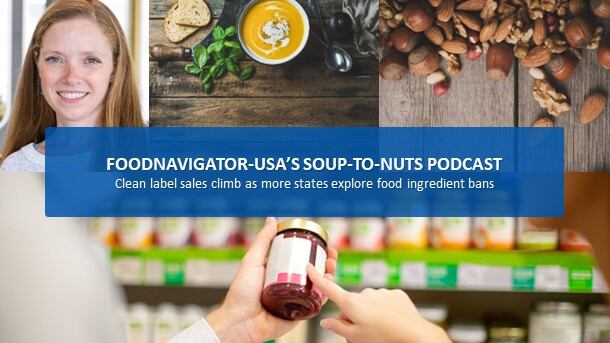This does not mean that packaged food players are not launching new products – because some are – but rather most launches in recent years rarely go beyond short-term iterations for existing brands, such as flavor extensions or packaging reconfigurations, which BCG says, “carry low risk and deliver easily measurable returns, but yield limited rewards.”
To successfully generate value and engage consumers, BCG argues companies must offer new products, services, experiences and business models that go beyond core offerings, enhance their “operational excellence by adopting novel processes, technologies and business models” and pre-empt “disruptions and obsolescence.”
If this sounds like a tall order, that is because it is. But it is also one that Adam Melonas, the CEO and founder of Boston-based food innovation lab Chew Innovation, says he believes he can fill by “dramatically changing the model” of his already successful company, which in the past 10 and a half years has helped create more than 4,000 products across 25 categories – including many for some of the largest food and beverage brands in the world – and co-authored more than 40 patents or patent applications in the food industry.
In this episode of FoodNavigator-USA’s Soup-To-Nuts Podcast, Melonas shares his new approach to innovation, which includes teaming with “game-changing celebrities” who are the face of new ventures that can serve as bolt-ons for existing core strategic billion-dollar brands. He also shares how he is branching out to work with governments and non-governmental organizations to help democratize healthy food through education and policy.
[Editor’s note: Never miss an episode of FoodNavigator-USA’s Soup-To-Nuts podcast – subscribe today.]
The rise of the ‘innovation gap’
According to Melonas, the impetus for turning his business upside down and adopting a new innovation model was his “irritation” with the status quo and a growing “innovation gap” that began pre-pandemic but which he said metastasized during the lockdowns following the outbreak of COVID-19 and the subsequent inflationary period that prompted many investors to withdraw.
He explained that before the pandemic, the flood of venture capital into the packaged food industry diluted meaningful innovation by funding “ridiculous ideas that would never scale and never be profitable,” which meant “dumb ideas were flourishing.”
When the pandemic struck, many retailers and companies quickly scaled back to focus on the basics or their most popular SKUs to help manage supply chain distributions and labor challenges. And while many companies continued to grow while doing this because consumers were desperate for food to eat at home, eventually “the bubble burst” and “everyone’s houses were full to the brim with all this stuff” – effectively raising the bar for what else consumers considered worth bringing home.
This was compounded by skyrocketing inflation and higher interest rates, which further discouraged innovation of all but safe bets – such as line-extensions of popular brands, Melonas said.
“Now all of a sudden,” he added, “consumers have got this pent up demand for what is new,” but most retailers and brands do not have anything to offer.
To make matters worse, Melonas said, many of the large companies that have funding for meaningful innovation need two to four years to move from ideation to launch, which he says is too long for consumers, retailers and the industry at large to wait.
A new business model for a new era of innovation
Melonas posits that he can help shorten the time between insight and execution to six months with his new business model, which he says includes two prongs that will work synergistically.
The first prong is Chew’s existing service model in which it works with brands to renovate and innovate products, and the second prong will be a venture incubation model that is focused on “the things of tomorrow,” which “are being designed to bolt on to core strategic billion dollar brands to really evolve those, contemporize those,” said Melonas.
The founderless businesses developed in the incubation side of Chew’s business will be supported by celebrities who have an authentic connection and who will use their megaphones to promote the products to key consumers and “drive sales to the masses,” he added.
Under the new venture incubation prong of the business model, Melonas says Chew will work on six projects at a time for an annual output of 12 bolt-on ready innovations a year. He explains that his team will identify and evaluate where to focus by juxtaposing traditional consumer data with “disparate” other data gathered in part with help from AI but analyzed by humans.
Chew’s analytics team will then quantify the insights to “make sure the juice is worth the squeeze,” and that the potential revenues are meaningful, he said.
Chew sees potential where others do not, including plant-based protein
So, where might Chew place its bets? Melonas says he sees significant potential for plant-based meat analogues, despite what a chorus of naysayers are extolling.
He explained that the next generation of plant-based protein needs to move beyond price, taste and nutrition parity. Rather, he said, the segment needs to explore the “less sensational side of the story” and examine what is driving consumers to adopt plant-based eating, what are they looking for and what are they missing.
He also sees an unmet need for snacks that check consumers’ “macro level need states,” and for “complete disruption in beverage,” which he argues may not come from new companies but the revamping and modernization of existing brands.
While Chew is adopting a new approach to product development, Melonas is a firm believer that there is not just one way to innovate, and so he encourages other players to “amp up the irritation a little bit” and look for meaningful solutions that can profitably scale and help futureproof the food system.




